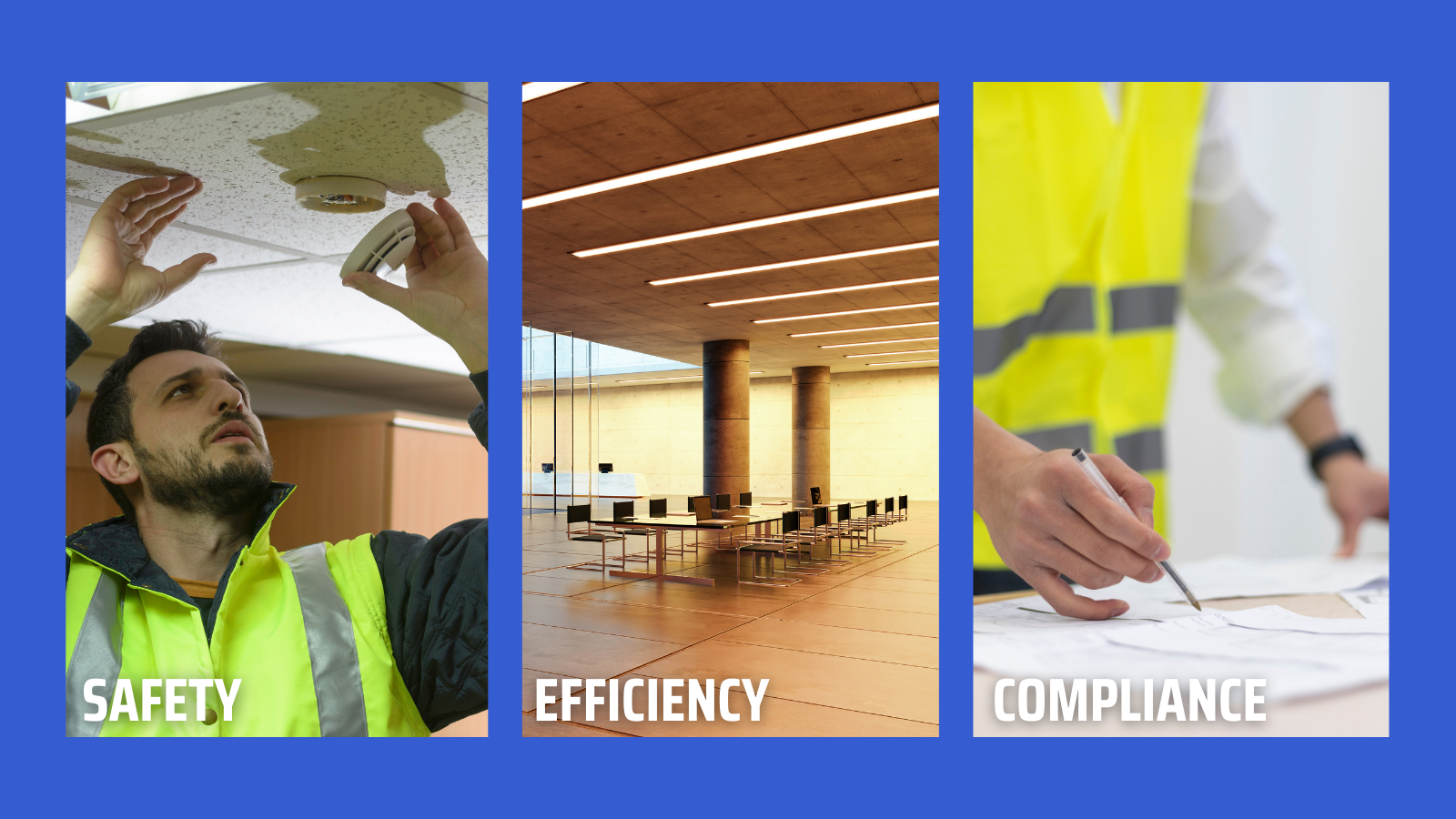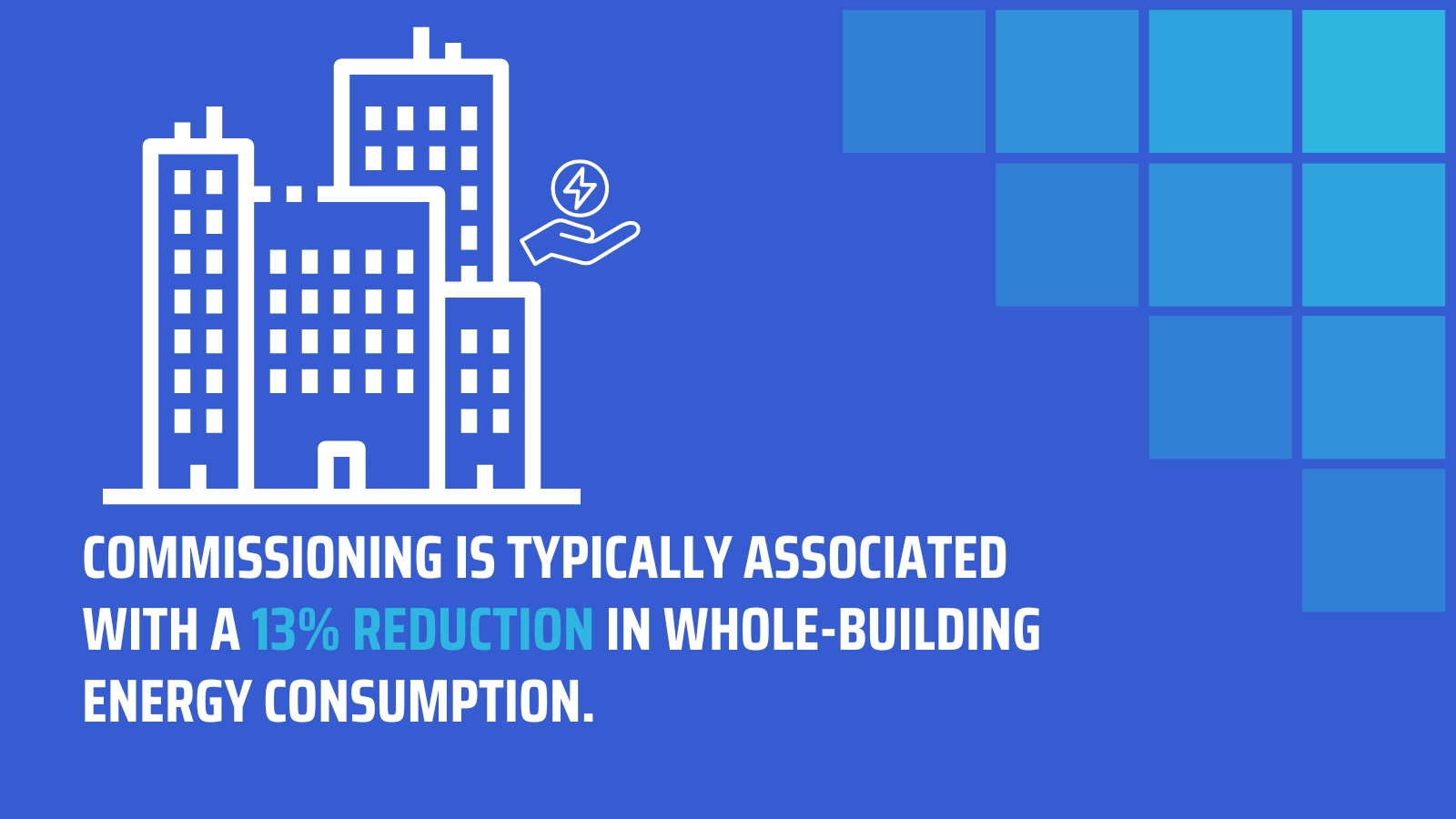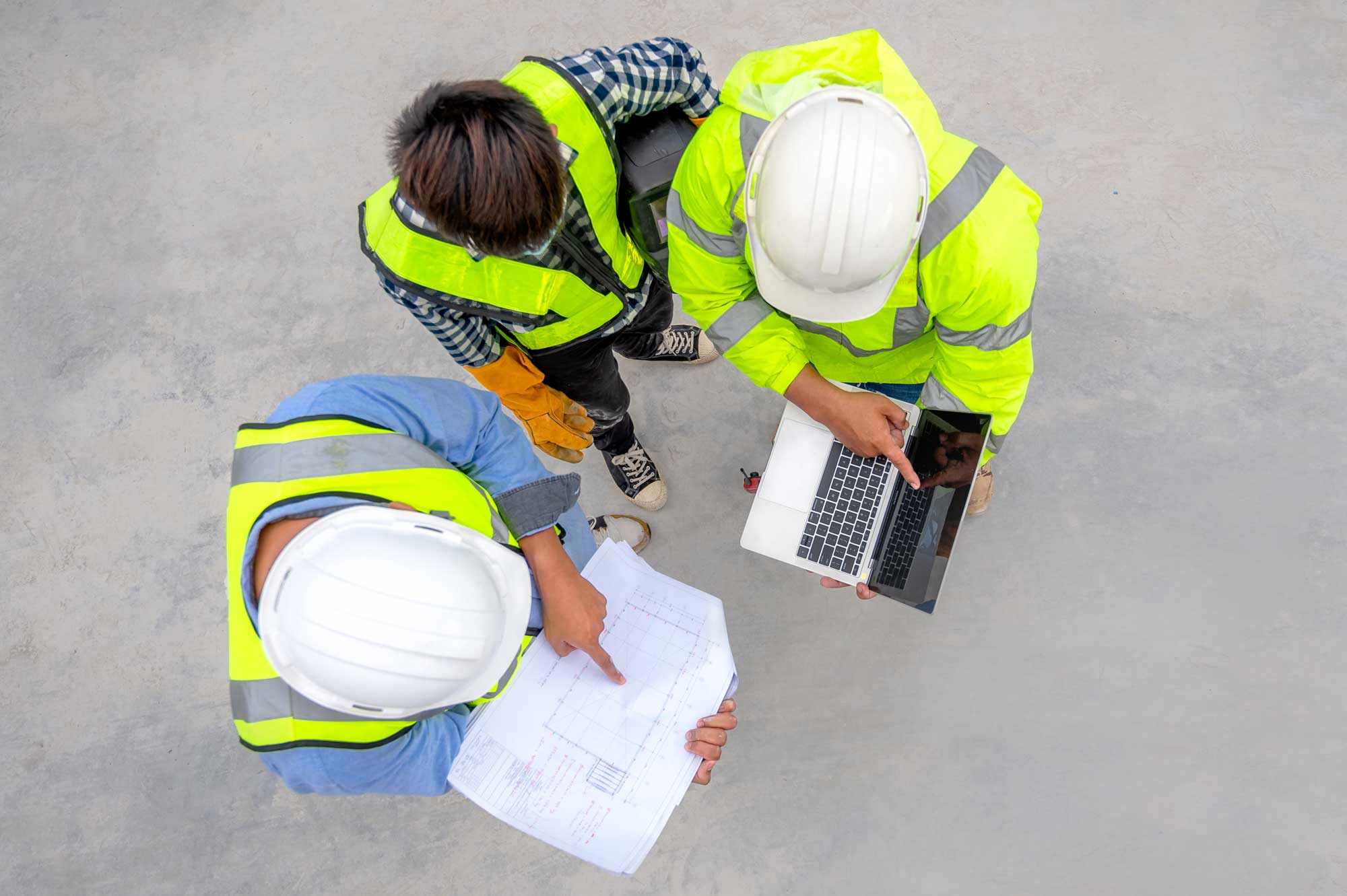In the construction industry, the role of commissioning management is critical to the success of any project. Whether dealing with mechanical and electrical systems or structural components, commissioning ensures that all elements of a building operate as intended, meeting both design specifications and owner expectations. It also plays a key role in helping projects meet sustainability standards, such as achieving certifications like LEED, Estidama, or BREEAM, by optimising energy efficiency and ensuring compliance with environmental regulations.
In this blog, we explore the stages of commissioning management in construction, its essential benefits, and the best practices that help ensure the successful construction projects. By following these guidelines, project teams can minimise risks, optimise system performance, and enhance the long-term value of the asset.
What is Commissioning Management in Construction?
Commissioning management in construction refers to a structured, quality assurance process that validates and documents the performance of all building systems, including HVAC, electrical, plumbing, and safety systems.
Commissioning consultants ensure these systems function as designed, meet owner requirements, and adhere to regulatory standards and sustainability goals. For projects aiming for sustainability certifications, commissioning plays an essential role. For instance, HVAC systems, which are central to energy efficiency, undergo rigorous testing to ensure they meet the required performance standards, which is crucial for obtaining energy-related credits.
The commissioning process begins at the early design stages and continues through installation, testing, and final handover, ensuring that all systems are properly planned, installed, and functional. This comprehensive approach is crucial for the overall success of a construction project, providing a seamless transition from the design phase to the operational phase. These services are vital for ensuring:
- Safety: Commissioning ensures that every system is tested and verified to operate safely. This includes fire safety systems, electrical installations, and mechanical operations, all of which must meet local and international safety regulations. By addressing potential hazards early on, commissioning mitigates risks, enhances safety standards, and provides peace of mind to stakeholders.
- Efficiency: An efficient system not only improves building performance but also reduces long-term operational costs. The commissioning process involves optimising systems like HVAC, lighting, and water supply to function at peak efficiency, minimising energy consumption. By fine-tuning these systems during the commissioning phase, operational costs are reduced, leading to significant energy savings and improved sustainability outcomes.
- Compliance: In today’s construction landscape, adherence to stringent building codes and industry standards is non-negotiable. Commissioning guarantees compliance with all relevant regulations, including safety standards, building codes, and environmental certifications. Whether it’s BREEAM, LEED, Estidama, or other sustainability frameworks, commissioning ensures that the project meets all necessary benchmarks for sustainability and environmental performance, facilitating smoother project approvals and long-term operational success.

Understanding the Commissioning Process
Commissioning in construction is a detailed process that requires careful planning and coordination at every stage. Below are the primary stages involved, with examples highlighting their relevance in achieving sustainability certifications.
1. Pre-Commissioning
Pre-commissioning begins during construction and focuses on verifying that systems and components are installed according to design specifications. This includes inspections and testing to ensure the project is ready for further functional and operational tests.
In the UAE, many projects aiming for Estidama Pearl certification include energy-efficient lighting and water-saving measures. Pre-commissioning would involve verifying the correct installation of solar water heaters in a residential community in Abu Dhabi, as per the guidelines of Estidama.
2. Functional Performance Testing
Functional testing ensures that individual systems meet performance criteria. For instance, HVAC systems will be tested for temperature control, airflow, and energy efficiency, confirming they operate as designed.
In the wider GCC regions, for a building seeking LEED certification, testing the HVAC systems for optimal airflow and temperature control is essential given the warm climate.
3. Integrated System Testing
Once individual systems are verified, they are tested together to ensure that all building components work efficiently as an integrated whole. This ensures that systems do not interfere with each other or cause operational inefficiencies.
In Saudi Arabia, for a BREEAM-certified project, integrated system testing might involve verifying the coordination between the building’s automated lighting systems and HVAC controls. This ensures that the building meets its energy performance targets and reduces overall energy consumption.
4. Operational Readiness Testing
Operational readiness testing simulates real-world conditions, ensuring that all systems operate efficiently under actual working conditions. During this phase, commissioning managers work closely with project stakeholders to ensure that all performance goals are met before handing over the project.
A UAE-based hospital targeting LEED certification would perform operational readiness testing for its solar panels and backup energy systems. This ensures the building can sustain energy-efficient operations under typical healthcare facility loads.

5. Handover and Documentation
The final stage is the formal handover of the building to the owner. Comprehensive documentation, including test results, inspection reports, and operating manuals, is provided to ensure a smooth transition to operational use. This documentation is also critical for certification submissions, where detailed performance records may be required.
For a government building in Dubai seeking Estidama certification, handover would include providing detailed manuals for maintaining energy-efficient systems like solar panels, in addition to reports on functional testing and system integration, which are crucial for achieving the necessary credits for certification.
What are the Benefits of Commissioning Management Services in Construction?
According to a study by Lawrence Berkeley National Laboratory, commissioning typically results in 13% median whole-building energy savings. Commissioning management services provide numerous benefits, ensuring quality, safety, efficiency, and sustainability throughout the building’s lifecycle. Here are some of the key advantages:

1. Reduced Risks
By identifying potential issues early in the process, commissioning reduces the risk of costly delays or operational failures, preventing budget overruns and ensuring systems meet performance standards.
2. Improved Quality
A well-executed commissioning process guarantees that the building meets high-quality standards. This includes verifying that systems perform to the required specifications, which leads to better project outcomes and client satisfaction.
3. Enhanced Energy Efficiency
By optimising system performance, commissioning reduces energy consumption and minimises environmental impact. This directly supports sustainability goals and enhances the building’s overall energy performance.
4. Increased Safety
Safety is a top priority in commissioning management. Thorough testing and inspection ensure that all building systems meet safety regulations and HSE standards, reducing the risk of accidents.
5. Maximised Asset Value
Proper commissioning increases the long-term value of the building by ensuring it operates efficiently and is free of defects. This results in lower maintenance costs and a longer lifespan for the building’s systems.
What are the Best Practices for Successful Commissioning Management?
Commissioning management companies adhere to industry best practices to ensure the successful delivery of construction projects, from inception through to operation. These practices not only ensure that systems are safe, efficient, and compliant but also contribute to long-term operational success and sustainability. Below are some of the most effective practices followed by commissioning management professionals:
1. Early Integration
Incorporating commissioning management into the project from the design phase is critical to identifying potential issues early on. By integrating commissioning early, stakeholders can address design flaws or misalignments before they escalate into costly problems during installation or post-construction phases. This proactive approach helps reduce risks, minimises project delays, and ensures a smoother transition to operational readiness. Additionally, early involvement allows commissioning experts to influence critical design decisions that enhance the overall performance of building systems.
2. Clear Communication
Clear and consistent communication is vital for the success of any commissioning process. Open channels of communication between the design teams, contractors, and commissioning professionals ensure that everyone is aligned with the project’s performance goals and timelines. Effective communication helps to swiftly resolve any issues that may arise during the design, installation, or testing phases. Regular progress meetings and status reports keep all parties informed, helping to prevent misunderstandings and ensuring that the project remains on track to meet its objectives.
3. Assemble a Qualified Team
Commissioning management requires a well skilled and experienced team to oversee the process. Assembling a qualified commissioning team with expertise in mechanical, electrical, and plumbing (MEP) systems, as well as sustainability frameworks, is crucial to managing the complex interactions between various building systems. A well-qualified team ensures that all systems are installed, tested, and verified according to industry standards and the project’s specific performance criteria. This expertise is also invaluable in troubleshooting any issues that arise, helping to avoid costly rework and delays.
4. Comprehensive Documentation
Thorough documentation is a cornerstone of successful commissioning management. Maintaining detailed records of inspections, tests, and corrective actions provides a clear audit trail, ensuring accountability and transparency throughout the project. This documentation is essential for quality assurance and for demonstrating compliance with sustainability certifications such as BREEAM, LEED, and Estidama. Comprehensive records also support future operations by providing facility managers with detailed information on system performance, helping them to maintain optimal efficiency and identify potential areas for improvement.
5. Ongoing Monitoring
Commissioning doesn’t really end with the handover of the building. Ongoing post-handover monitoring is essential to ensure that systems continue to operate efficiently and effectively over time. Regular inspections, construction supervision, and performance assessments help to identify any deviations from expected performance, enabling swift corrective actions. Monitoring also ensures continued compliance with safety regulations and energy efficiency standards, helping to extend the lifecycle of the building’s systems and reduce long-term operational costs. This practice is especially important in sustainable buildings where energy consumption and environmental impact are critical performance metrics.
Conclusion
Commissioning management services in construction are essential for ensuring quality, safety, and operational efficiency. By following best practices and integrating sustainability goals, commissioning helps reduce risks, optimise energy efficiency, and enhance the long-term value of construction projects. For projects pursuing sustainability certifications, commissioning is key to meeting performance standards.
About us
Stonehaven is a trusted project management company and construction consultant based in Dubai, offering comprehensive construction management services across the UAE with offices located in Dubai, UK and Sri Lanka. As one of the leading project management companies in Dubai, we manage projects from inception to completion, ensuring quality, efficiency, and cost-effectiveness at every stage.
We deliver value through expert project management consultancy services, tailored to meet the unique needs of each client. Our core services include Cost Management, Project Management, Construction Supervision, Engineering Support, Design Support, and Marketing & Communications. Whether you’re looking for construction consultants or project managers in the UAE and wider GCC region, Stonehaven is your trusted partner for achieving excellence in your next project.
At Stonehaven, we offer comprehensive commissioning management services that ensure all systems and components of your construction project meet operational requirements and sustainability goals. Whether it’s mechanical, electrical, or integrated system commissioning, Stonehaven is committed to assist with ensuring the quality and success of your project.
Contact us today to learn how our commissioning management services can support your next construction project and help you achieve your sustainability goals. Visit www.stonehaven.ae for more information.








